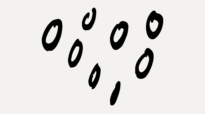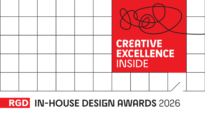
From being a Superman-led to an Avengers-led studio, Laura Stein RGD takes us through the "friends and family" re-branding process for Bruce Mau Design.
Every organization is in evolution. Whether they are consciously evolving or not, their place in the world is necessarily changing, because the world itself is changing. As a design studio who helps all sorts of organizations evolve — strategically, visually, experientially, we are especially sensitive to change.
"A little old-fashioned" is how a good friend described the Bruce Mau Design identity when I asked her about it back in 2019. "Classic, perhaps?" "Old-fashioned." These can be slippery ideas but apparently, we were falling firmly to one side. I didn’t feel old-fashioned or set in my ways or even out of step. I had just rejoined BMD with high hopes that this would be the place for ambitious and creative designers. But clearly our identity didn’t telegraph those things. So we too needed to change.
A new identity is no small task, especially for a small studio. Could we do this internally? This felt almost impossible, functionally and spiritually. How could we gain the distance we needed? And who even has the time to do this? Should we hire a branding agency to do it? Could we trust their process? This idea seemed crazy when we had all these talented people right here. Cue circular thinking. And then cue a pandemic that put everything else on the back burner.

Bruce Mau Design began 35 years ago and has necessarily been through a lot of change — highs and lows, contraction and growth, local projects and global clients. Thirteen years ago, Bruce left the business. The leadership at that time suddenly had to figure out how to forward as a studio without its charismatic and famous founder. We all pushed and hustled and we changed. People came and went and a new leadership was established. And we changed again.
Big questions we ask all of our clients: What do we take forward and what do we leave behind? What are the stories we told back then and what are the stories we tell now? We sometimes think in terms of bass lines that hold everything together and riffs that take us somewhere new and unexpected. BMD had become a nice mix of veterans, who had worked closely with Bruce, and newcomers. We needed to bring in both perspectives in order to unpack who we are today.
This became a "friends and family" process that took a light touch instead of a deep dive. We had client and collaborator interviews. We held an all-studio workshop. We had tight little working sessions that would get scheduled and rescheduled as we balanced the daily needs and future-thinking. And we brought in some brilliant insider/outsiders across strategy, design and digital — a hand-picked selection of trusted individuals who had worked with us in the past and could help push us as we envision our future.

What we found is that optimism continues to be an integral part of our story. From the beginning, there has been the idea that design can create a better world. Collaboration is also key — bringing together different skills and strengths to create something new. Some stories morphed over time: the notion of the singular author eventually became a story about the move from a Superman-led to an Avengers-led studio.
The brief brought the bass lines and riffs together and became a directive to turn the studio inside out — celebrate not only outcomes but also process and people. And to talk about ourselves externally the way we talk about ourselves internally: We are BMD. We are a place of in-depth learning and joyful making. Across formats, geographies, industries. And we have convictions about design and the way we get there together. Our identity and now our website make room for all of those things.
Change can be scary. And a new identity, even for a design studio that works on this every day, should be a little scary. Scary because it is new and unfamiliar but also because it is declarative. I often say that an identity should give an organization an expression of its best self. It shouldn’t be a default place to settle but a bar to be reached every day, embracing whatever comes next.
Laura Stein RGD
Laura Stein RGD, Chief Creative Officer at Bruce Mau Design. BMD is a research-based design studio delivering inventive and rallying design across all the places where people connect. Home to an international community, BMD works across borders and cultures, helping organizations at every scale grow, transform and deliver indelible experiences. As Partner and Chief Creative Officer and long-time advocate for collaboration, Laura provides overall creative and strategic direction across a variety of project types, from a museum in Abu Dhabi to a greenway in Austin to a global performance brand based in Tokyo.
Tags
Related Articles


Glenda Rissman RGD Emeritus, Peter Scott RGD













